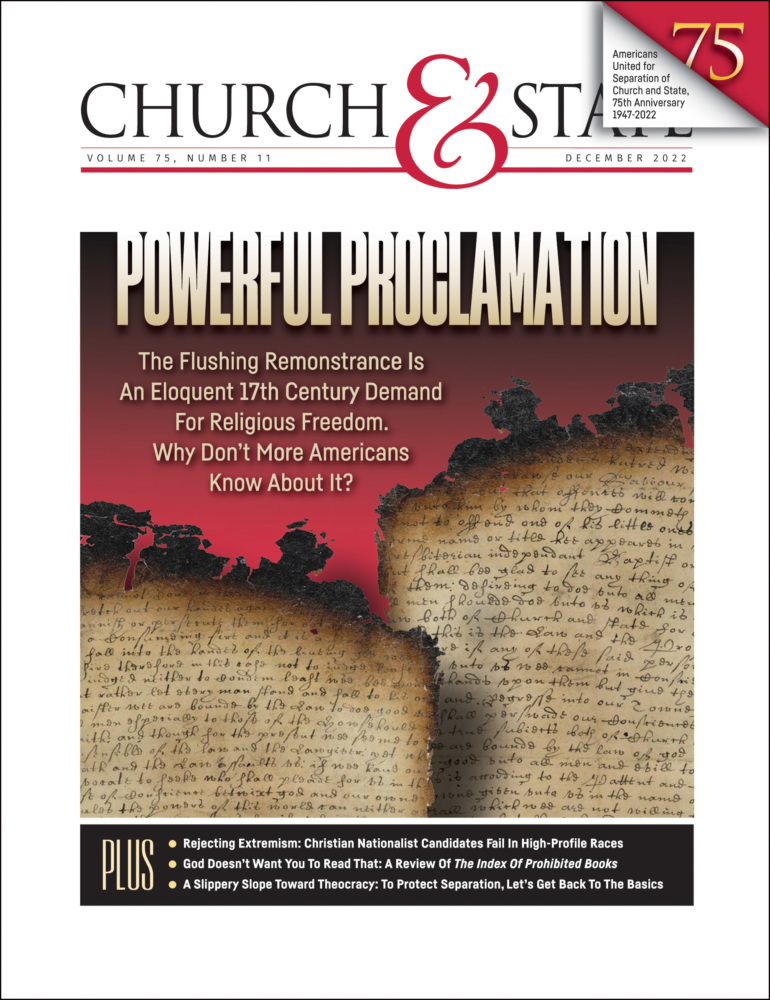
Powerful Proclamation: The Flushing Remonstrance Is An Eloquent Plea For Religious Freedom. Why Don’t More Americans Know About It?
In 1656, just one year before the Remonstrance was issued, a man named Robert Hodgson publicly preached Quaker doctrines in New Netherland. He was arrested, tried and sentenced to two years of hard labor in a quarry after a trial conducted in Dutch, a language Hodgson didn’t speak.


